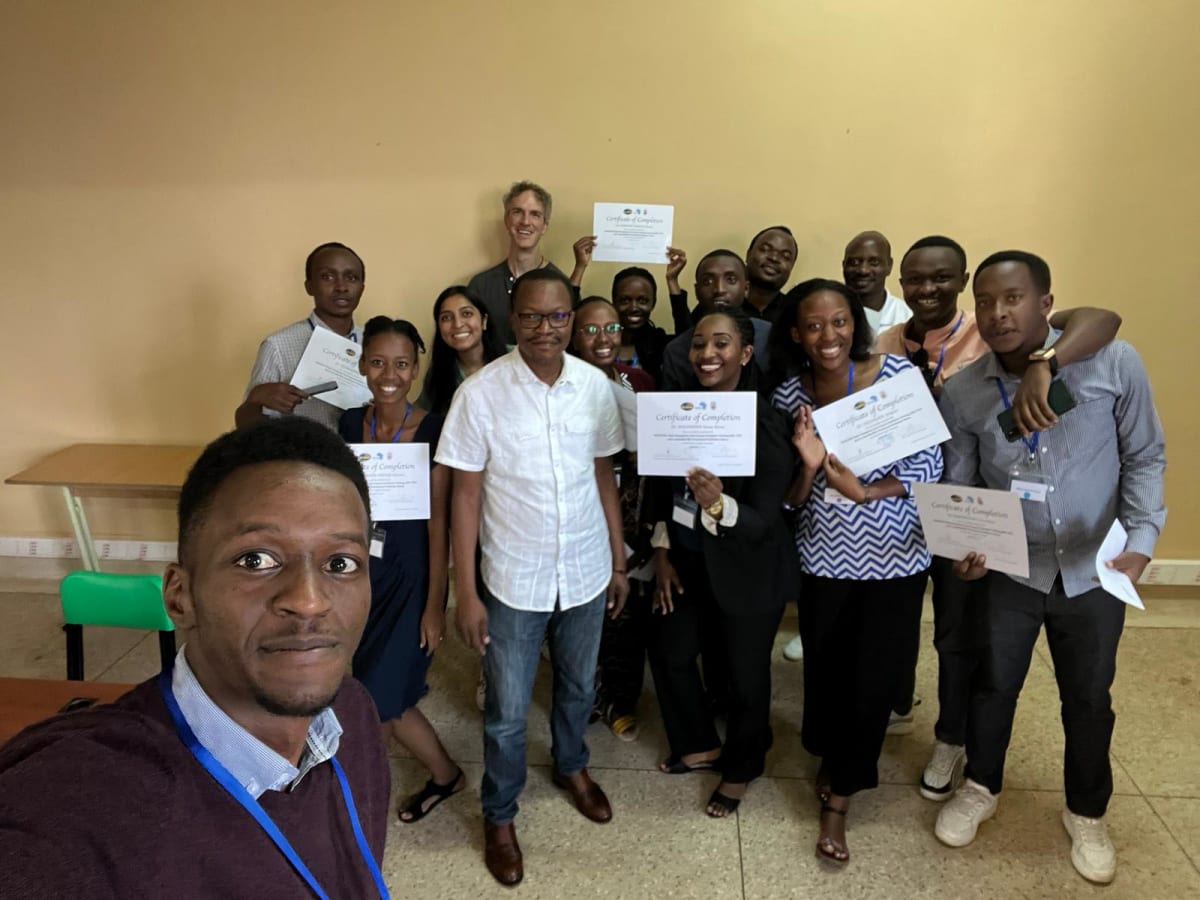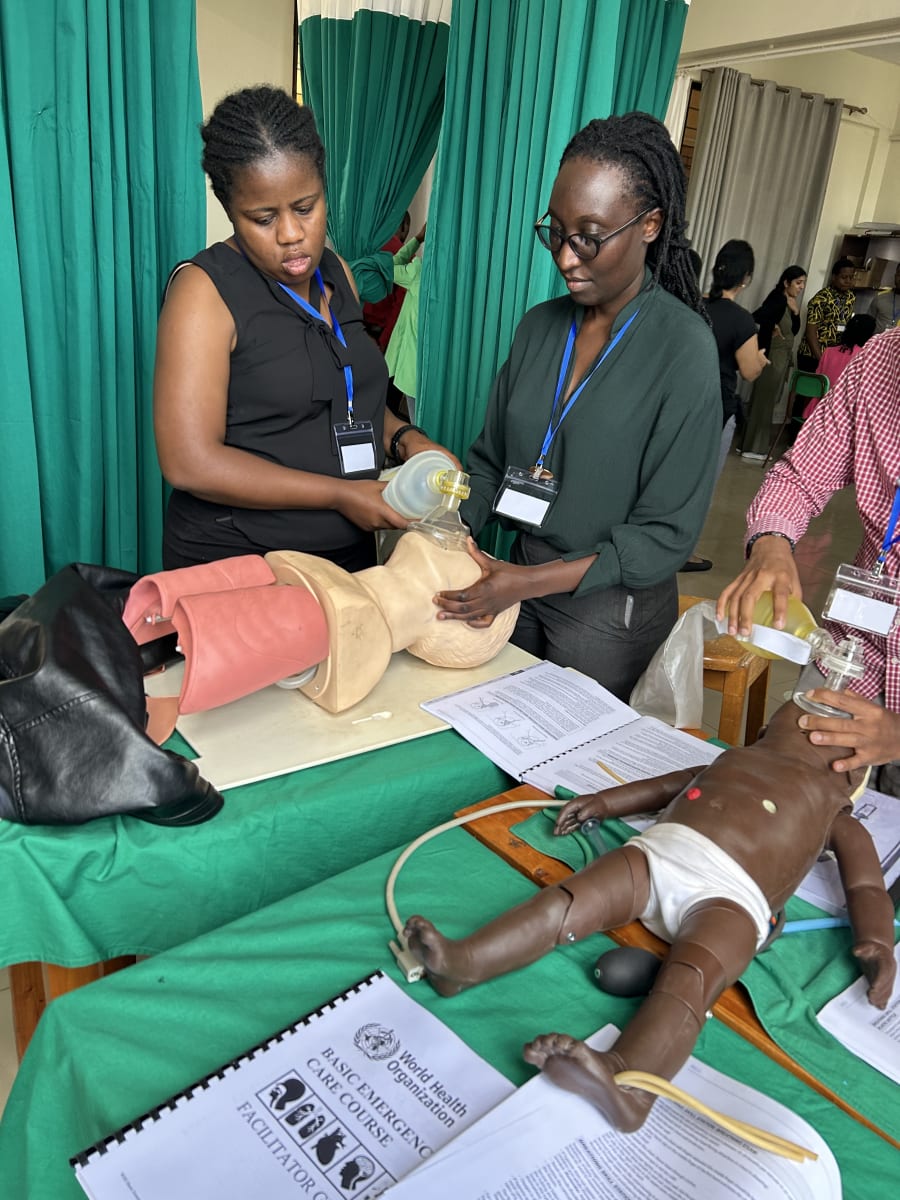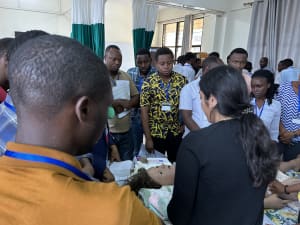We are traveling to Rwanda in September, 2023 to teach the World Health Organization Basic Emergency Care Course to local Rwandan healthcare providers who do not have training in the identification and stabilization/management of acute medical and traumatic emergency conditions. This course covers emergency topics including but not limited to respiratory failure, traumatic injury, seizures, obstetric emergencies, and pediatric emergencies. We will teach a 5-day, 30-40 hour course that includes foundational lectures and practical skill building exercises. "Hands-on" components will include splinting, bleeding control, airway management, decompression of pneumothoraces, fluids resuscitation, burn management, and envenomations. The course will be taught using locally available equipment, in keeping with local standards of care, and in local languages, using local physicians and facilitators in addition to ourselves.
Emergency medicine remains a nascent speciality in much of the remainder of the world, including in low and low-middle income countries. Many healthcare providers, including licensed physicians, have not received appropriate or sufficient training in the management of emergency medical conditions. As a result, morbidity and mortality from otherwise treatable or manageable conditions remains unnecessarily high. By teaching this course and building local capability, we will improve the health outcomes of hundreds to thousands of patients who would have otherwise been treated by physicians or healthcare workers lacking the knowledge of basic emergency management.
We will also train local physicians to teach/administer this course, thereby creating a sustainable, decolonized, local capability within the country, limiting the need for future external training or assistance once the capability matures and training disseminates.
There are three groups that will benefit:
1) The Rwandan Patient Population. Due to our delivering this course and developing local capability, patients will receive higher quality emergency and acute care from trained providers. This training will advance the local standard of care. The providers being trained also work in areas that are remote or underserved compared with the major metropolitan areas such as Kigali. The patient population includes 12-13 Million persons of all ages and genders.
2) Local healthcare providers. This population has not received training in the management and stabilization of basic emergencies. This course will advance their capability and understanding. Further, since we are also creating a population of future teachers and trainers within this local physician group, their professional experience and capability will expand.
3) The Rwandan Ministry of Health. By providing external and free training to Rwandan healthcare providers, we assist local regulatory authorities with advancing healthcare in Rwanda without any additional financial or resource burden.
Direct Impact: Teaching Emergency Medicine to 20-30 Rwandan healthcare providers, who will not otherwise receive training in it. Once providers are trained themselves, we also instruct them in how to administer/teach the same course to others. This 'Training the Trainers' model creates indirect impact by creating a lasting educational capability within Rwanda.
Indirect Impact: Through advancing the local skills of providers, patient care in all served areas will advance/improve. Through education, we stand to influence the healthcare of thousands of patients over time by creating capability where it does not yet exist.
After we leave, since we are teaching, the effect of our presence will remain through advanced skills, and through the training of local future teachers of the course. Eventually, we hope to no longer be needed to teach Emergency Medicine in Rwanda; once enough local providers have been trained, and enough local teachers developed, delivering such course there should be self-sustaining - delivering an impact that will endure.








Courtesy of this foundation grant, we were able to travel to teach emergency medicine to 33 Rwandan physicians. Emergency management and stabilization is not a part of their training. By providing this course, we developed capability with airway, respiratory, circulatory/cardiac, neurologic, traumatic, and exposure-related emergencies within the country. The physicians trained are about to be deployed to many remote health outposts in the country, where the population depend solely on their skills for management of any emergency condition.